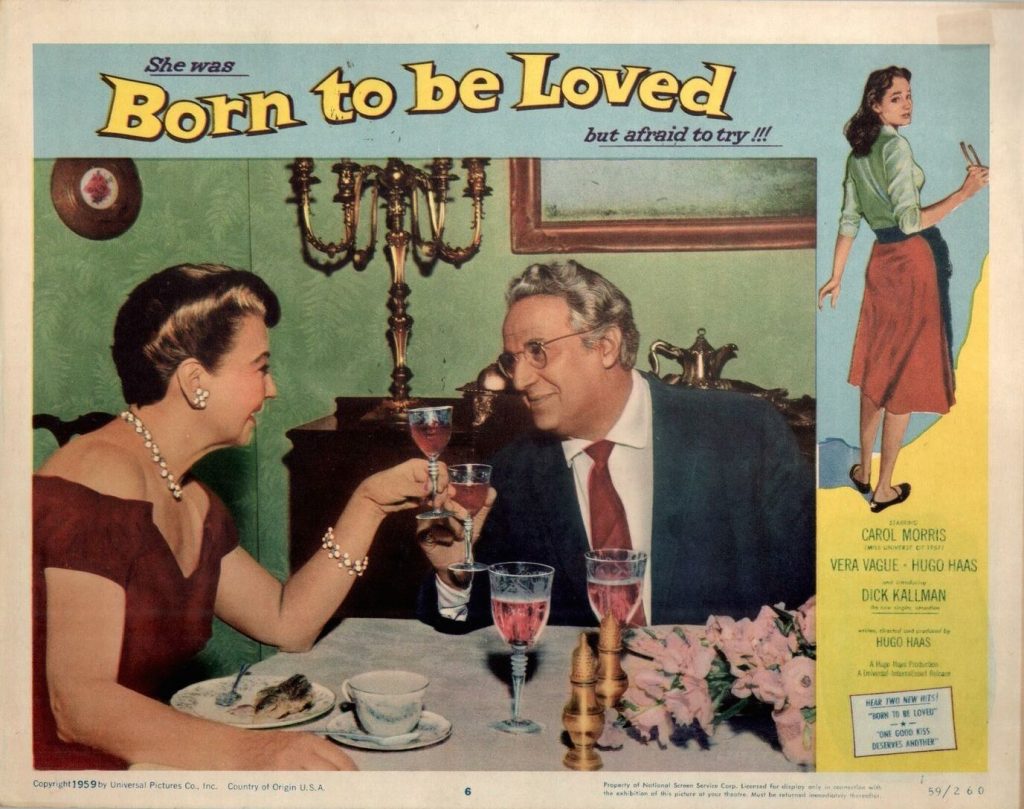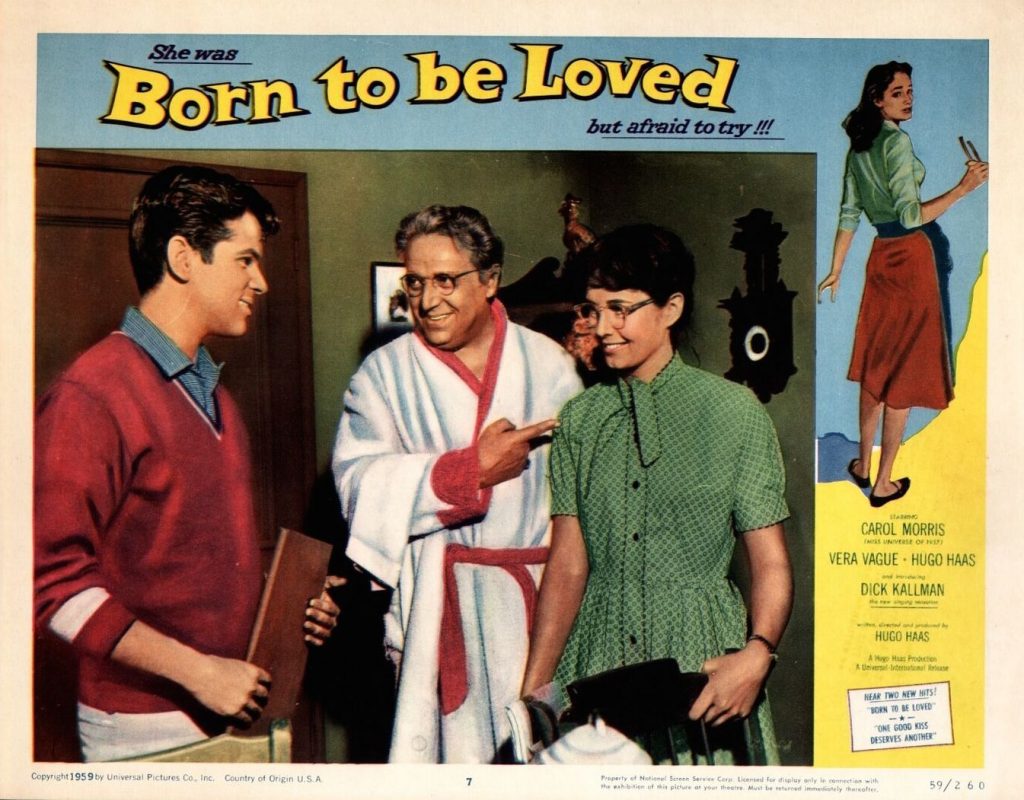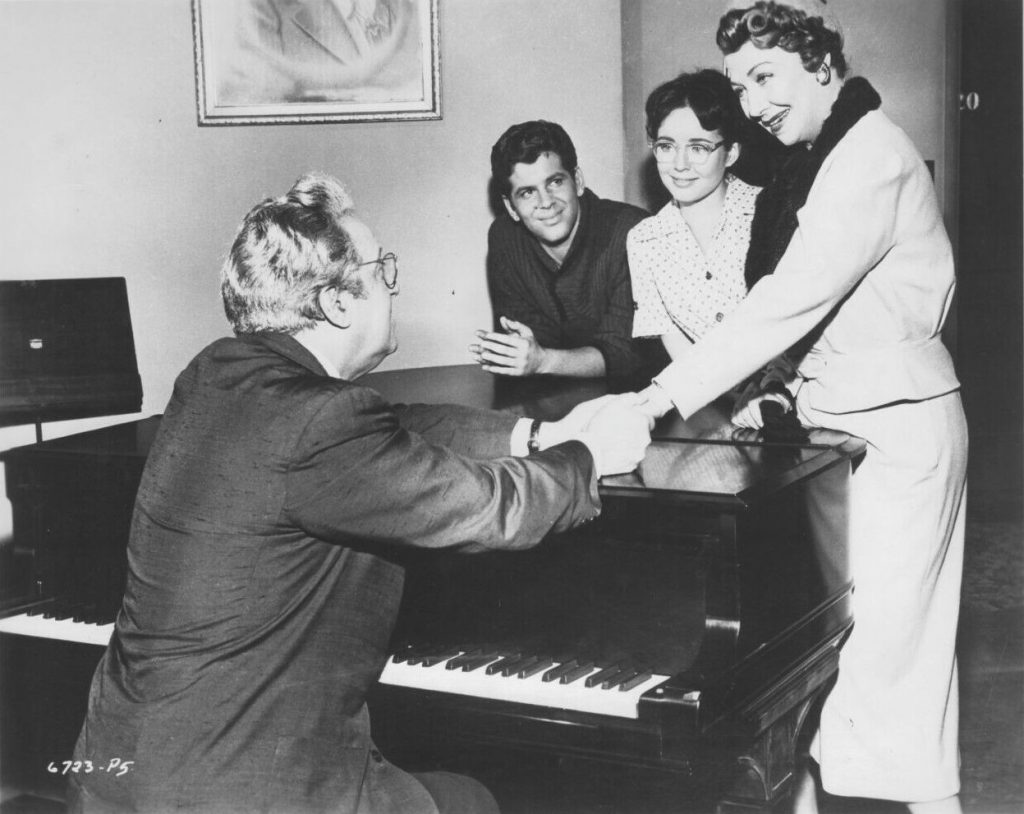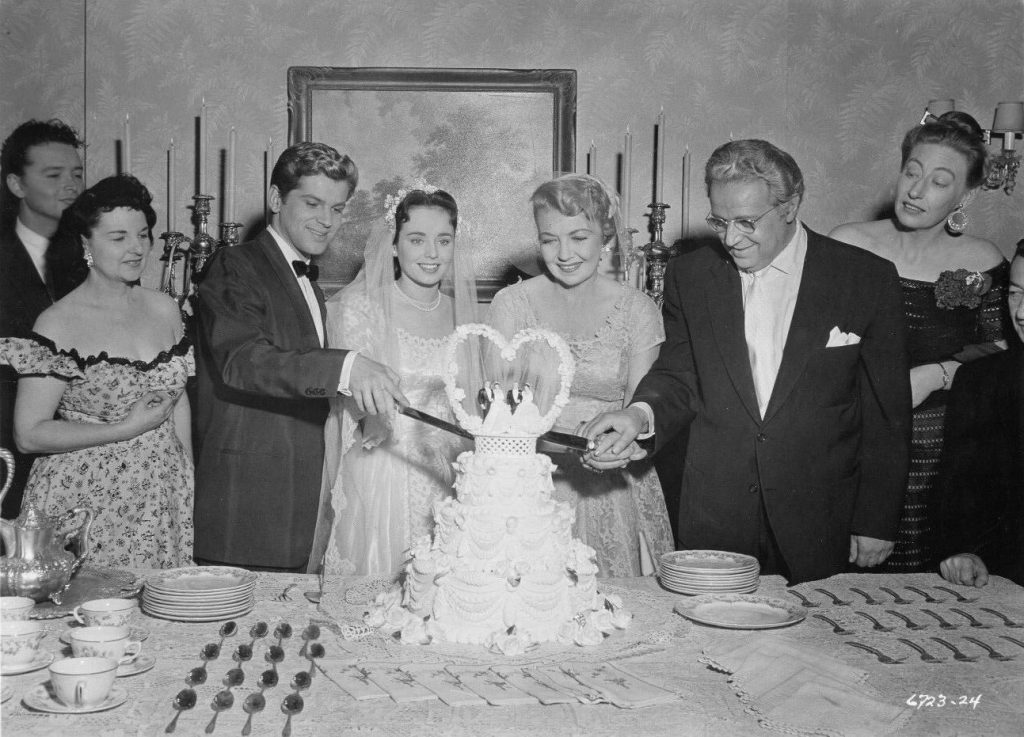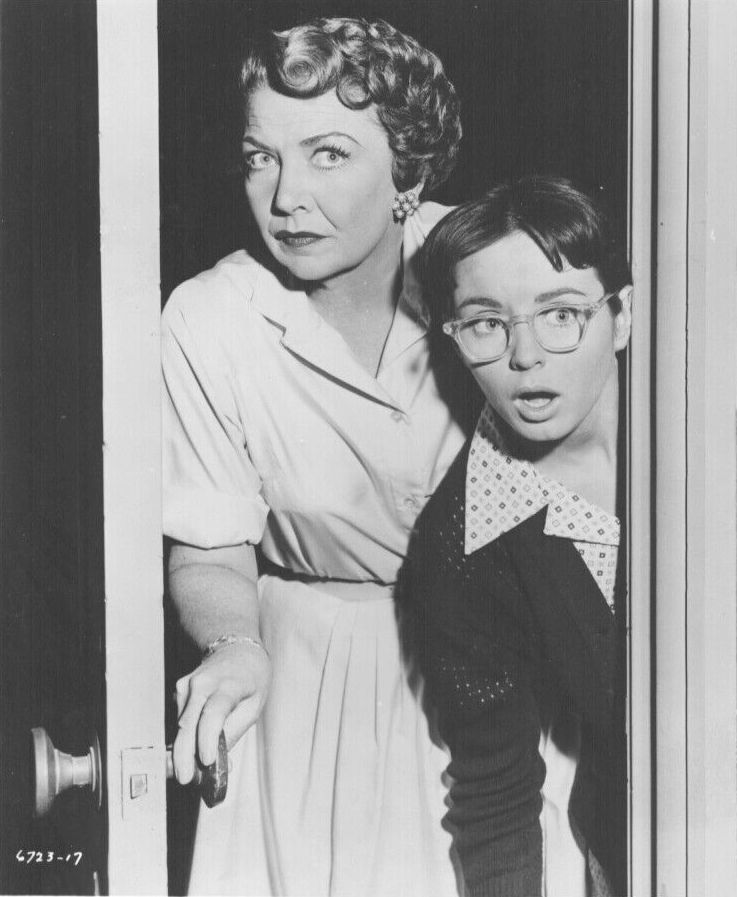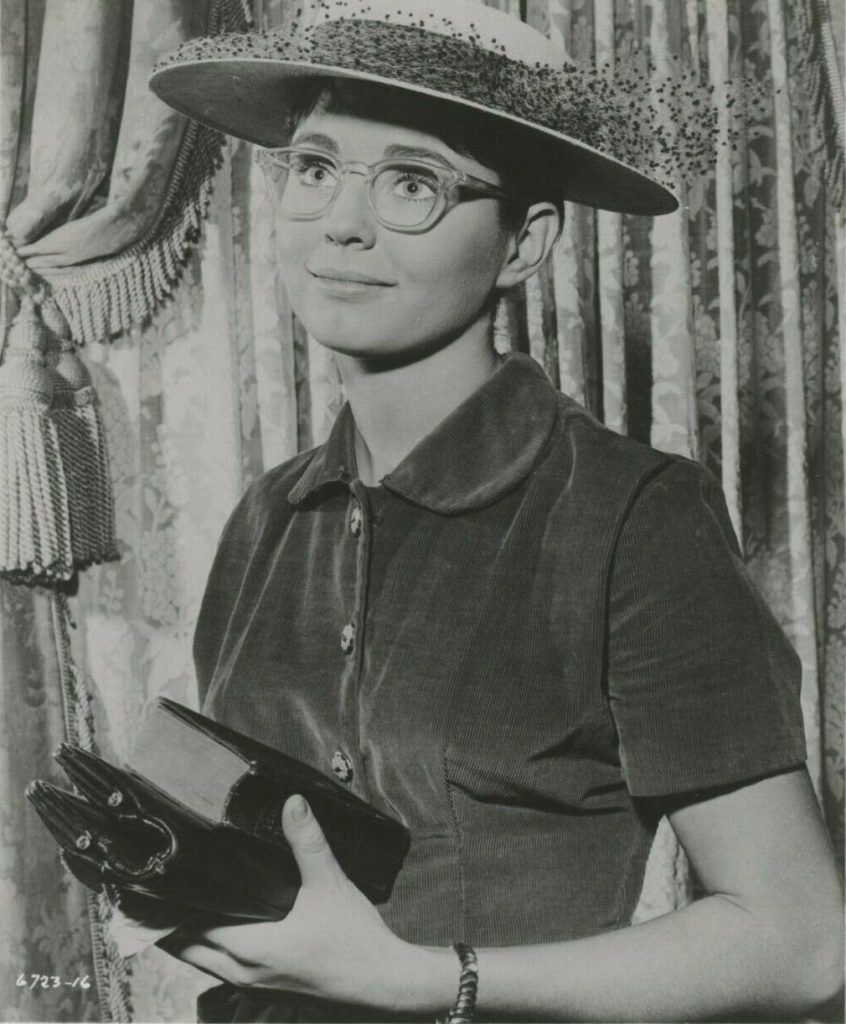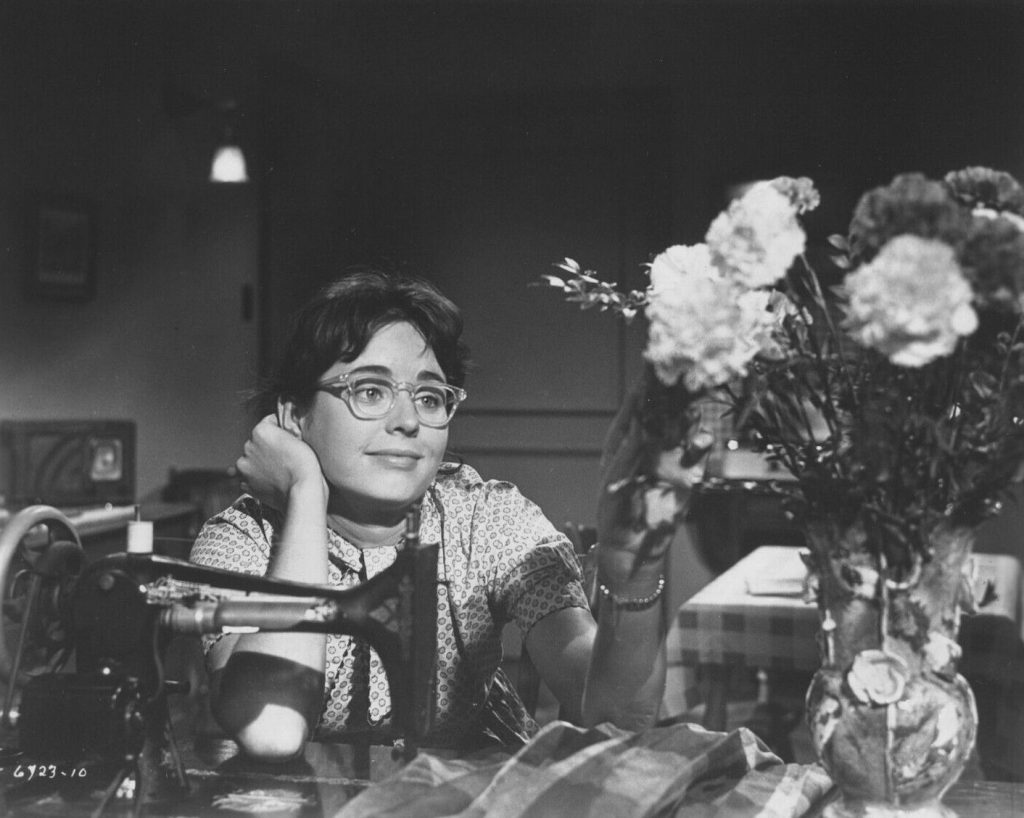
Born to Be Loved (USA, 1959) 82 min B&W DIR-SCR: Hugo Haas. PROD: Hugo Haas, Robert Erlik. MUSIC: Hugo Haas, Franz Steininger. DOP: Maury Gertsman. CAST: Carol Morris, “Vera Vague” (aka- Barbara Jo Allen), Hugo Haas, Dick Kallman. (Universal Pictures)
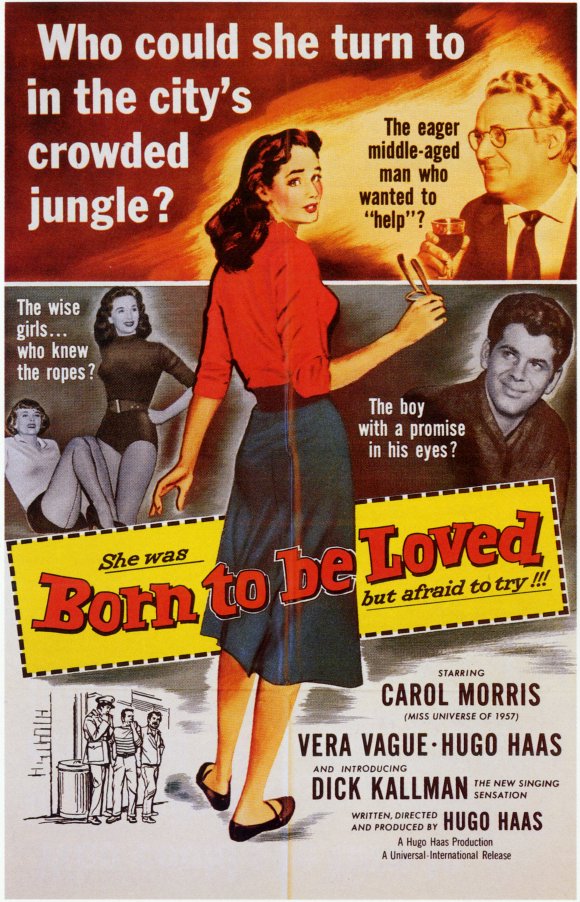
Actor-writer-director Hugo Haas had made several films with actress Cleo Moore, often casting himself as a Svengali-like figure to Moore’s characters. After her departure from the screen, Haas found another Trilby for the final stage of his career in former Miss Universe, Carol Morris. As Haas was now in his late 50s, he wisely writes a younger male romantic lead for his twentysomething star, and gives himself a more seasoned, fatherly supporting role to his ingénue lead.
Born to Be Loved is a delightfully old-fashioned film whose innocent quality suggests that it could have been made in the 1940s. Carol Morris is Dorothy, a bespectacled “plain Jane” seamstress who befriends the music teacher, Professor Martin (Haas), her neighbour in an apartment building. This film is really a simple little fable about how miracles occur in everyday life, and the degrees to which people show their kindness and gratitude. The key phrase of this narrative is the line: “God is too busy to keep the world going, so He needs people to perform his miracles.” The pivotal moment in the story occurs when Dorothy and the professor attend their different religious services together (his synagogue, and her Easter service), and have an innocent competition over whose prayers will be answered.
Her wish (offhandedly mentioned earlier) to be whistled at by the boys on the street comes true, and her self-esteem is boosted when Martin’s pupil Eddie (Dick Kallman) sends her flowers. She is elated by these incidents, but is later heartbroken when she learns that Martin had orchestrated both of these events. Still, she forgives him for his actions, knowing his good intentions
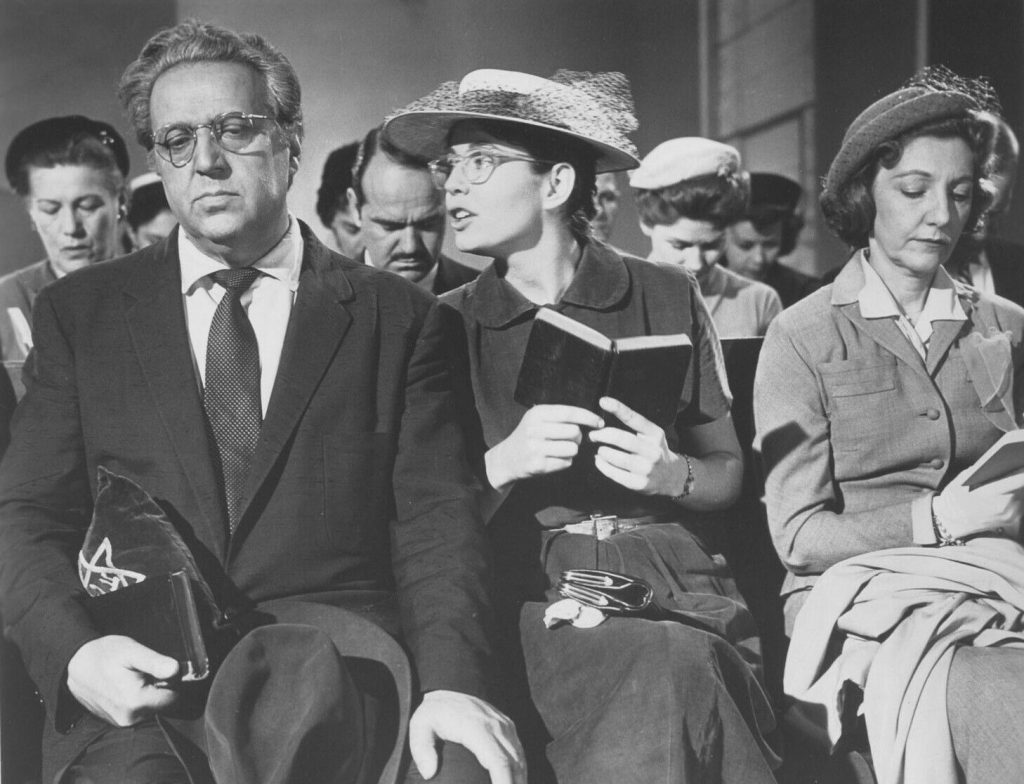
The Professor is working on an opus entitled “Fata Morgana” (or, “Mirage”), but needs a grand piano to compose it properly. When Dorothy visits the widow Irene Hoffman (Vera Vague), and they hear a sound of strings from her late husband’s grand piano, Dorothy offhandedly remarks that it was a message from Mr. Hoffman. But later when Mrs. Hoffman asks aloud if her husband is sending her a sign, and the piano strings hum again, she concedes that her late husband is asking her to “set the music free”, unlocking the piano for someone else to use. Thus, Dorothy arranges to have the piano lifted by a hoist into Martin’s upstairs studio. The professor comes home just in time to see the piano descending into the window, at the precise moment when it appears that it is being sent from the heavens.
In this bowery-level Pygmalion, Martin breaks Dorothy out of her shell, to realize the beautiful woman he knows is living inside. (After all, cinematic convention proves that women with glasses are really foxes: Bailey on WKRP, anyone?) Other minor miracles occur when Eddie is heartbroken because he lost out on his audition and quarrelled with his girlfriend, thus opening the door to a relationship between Dorothy and him. Subsequently, when Irene hears the professor playing the piano, she invites him to dinner to look at her late husband’s compositions.
The film unfolds very leisurely, to show how unexpected moments of goodness occur, all indirectly due to the professor’s “beautiful lies”. While the denouement becomes rather obvious, it is a lovely time spent watching the narrative get there. Born to Be Loved at first feels rather slight, but it improves on each viewing, with its delightfully old-fashioned sense of humanity. It may be the “sleeper” of Haas’ career.

